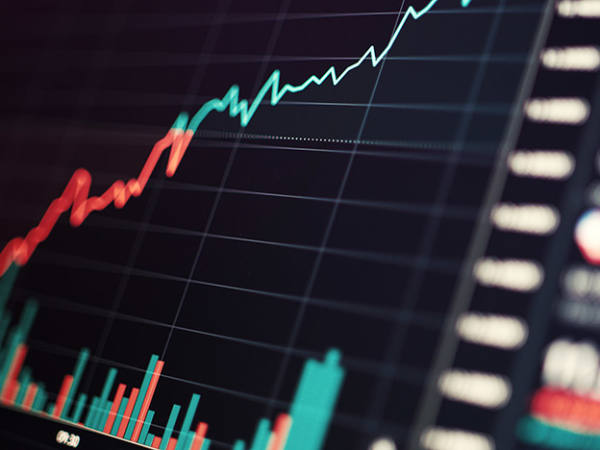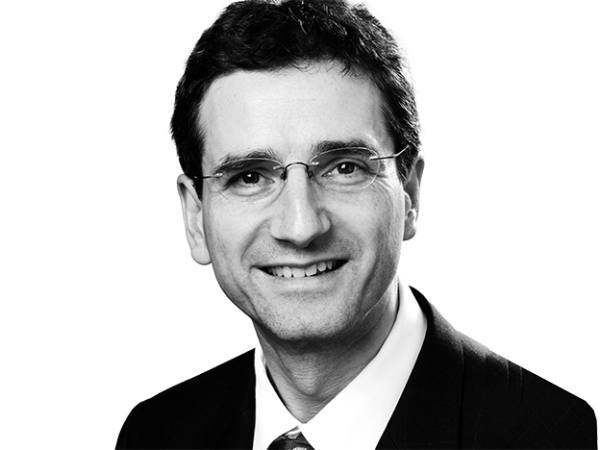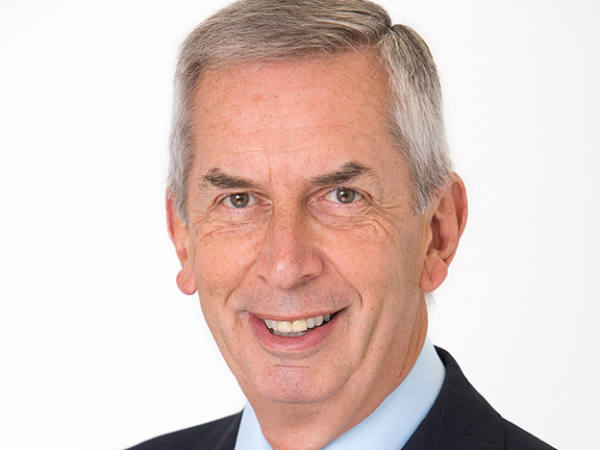What makes investing really come to life is when you have expertise or interest in an area or exposure to it and a degree of understanding. Technology, for example, plays such a big part in everyday life that it's difficult not to be drawn to stocks and funds in this sector. This is where specialist funds focused on particular areas come in. If you want exposure to physical assets have a look at the IC Top 50 ETFs for funds that hold metals such as gold, or the alternative assets and property sections of the IC Top 50 Funds.
Impax Environmental Markets (IEM)
Impax Environmental Markets aims to get exposure to the growth of cleaner or more efficient delivery of energy, water and waste. It invests in listed companies that provide or are involved with technology-based systems, products or services in environmental markets. These include companies operating in areas such as alternative energy, energy efficiency, water treatment, pollution control, waste technology and resource management.
At the end of July, the trust had 29 per cent of its assets in energy efficiency, 18 per cent in water infrastructure and technologies, and 17 per cent in food, agriculture and forestry. It is mainly invested in developed markets-listed companies and had nearly half its assets in the US and 35 per cent in Europe at the end of July.
Its holdings included utility company American Water Works (US:AWK) and Koninklijke DSM (NET:DSM), which supplies nutritional ingredients to the animal feed, food and personal care industries that help make them more sustainable and efficient.
The trust’s investment team is led by John Forster and Bruce Jenkyn-Jones who have run it since launch in 2002. They include environmental, social and governance (ESG) considerations within their 10-step investment process.
Despite its specialist focus, the trust has a good record of beating broad global indices such as FTSE World and MSCI World, and conventional global equities investment trusts.
“Impax Environmental Markets benefits from an experienced management team with a good long-term track record in a strategy that appears to be attracting interest from [private] investors,” comment analysts at Numis Securities. “2021 was a strong period for relative performance versus the FTSE Environmental Technologies 100 Index due to not holding technology stocks, although this was a drag in 2020. The trust also outperformed MSCI AC World Index. There is significant attention on environmental investments as part of a wider focus on ESG factors and Impax Environmental Markets is well-placed to continue to benefit from this theme. [It] has significantly rerated in recent years with the help of share buybacks, which represented nearly 30 per cent of its share capital. In January 2019, its board adopted a zero-discount policy and the trust has since moved to a premium and issued more than 107m shares – around 60 per cent of opening share capital – to satisfy ongoing market demand.”
Worldwide Healthcare Trust (WWH)
Worldwide Healthcare Trust invests in both the healthcare and higher-return, higher-risk biotechnology sector. It is well-diversified across various healthcare sub-sectors and at the end of July had 29 per cent of its assets in biotechnology companies, 26.5 per cent in pharmaceutical companies, 18 per cent in providers and services companies and 17 per cent in equipment and supplies companies. It had 70 per cent of its assets in North American listed companies and 20 per cent in emerging markets.
It can also invest up to 10 per cent of its assets in unquoted companies and had 7 per cent in these at the end of July.
The trust is run by OrbiMed Capital, a dedicated healthcare investment company founded in 1989. The trust’s managers are Sven Borho, founder and managing partner, and Trevor Polischuk, partner, at OrbiMed. They try to identify companies that could outperform, especially in areas such as therapeutics. Reasons for outperformance can include the publication of clinical trial data, drug approvals by US, European and Japanese regulatory authorities, legal events and mergers and acquisitions (M&A). The trust’s managers particularly like to invest in companies with underappreciated products in their pipelines, high-quality management teams and adequate financial resources.
Examples of holdings at the end of July included pharmaceutical company Bristol-Myers Squibb (US:BMY) and clinical testing company Natera (US:NTRA).
The trust has a good historic record of outperforming MSCI World Health Care index and last year and in 2019, for example, was well ahead of it. However, over the first seven months of this year it has lagged this index considerably for reasons including the outperformance of large-cap companies, a market rotation from growth to value stocks, underperformance of emerging biotechnology stocks and extreme volatility among emerging markets healthcare stocks. Compared with MSCI World Health Care index, the trust is underweight large-cap pharma and biotech stocks and has meaningful overweight exposures to emerging markets and emerging biotech companies.
So at the end of August its cumulative total returns did not look good. However, it has undergone periods of underperformance in the past from which it has bounced back.
A downside to this trust is its performance fee of 15 per cent of any outperformance over MSCI World Healthcare index. Over its financial year to 31 March 2021, for example, this plus its basic ongoing charge of 0.87 per cent added up to 2.37 per cent. However, specialist funds, especially those with exposure to unquoted investments, can charge more. And the performance fee is only levied in years when the trust performs well and more than compensates its shareholders.
Polar Capital Technology Trust (PCT)
Polar Capital Technology Trust aims for growth over the long term by investing in the shares of technology companies. Although it can invest globally, at the end of July around three-quarters of its assets were in North America and 14 per cent in Asia. It is well-diversified across technology sub-sectors with about a quarter of its assets in software companies, 20 per cent in interactive media and services and 18 per cent in semiconductor companies at the end of July. It is mainly invested in large companies.
The fund’s investment team is led by Ben Rogoff who has managed the trust since 2006. They invest in companies on the basis of their ability to make good returns rather than purely because of the type of technology they are involved with. When choosing potential investments the team assesses factors such as management quality, potential new growth markets and globalisation of major technology trends, and looks to exploit international valuation anomalies and sector volatility.
The trust had 115 holdings at the end of July which included well known names such as Microsoft (MSFT) and Alphabet (GOOGL). The trust’s holdings also included companies such as Applied Materials (US: AMAT), which provides manufacturing equipment, services and software to semiconductor firms, and electronic signature company Docusign (US:DOCU).
The trust’s cumulative numbers versus its benchmark, Dow Jones Global Technology Index, don’t look good at the moment due to underperformance last year and over the first seven months of this year. However, over the longer term it has a good record of beating this index.
“Relative performance over the past 10 years has been strong, with NAV total returns of 603 per cent (21.5 per cent a year) versus 584 per cent (21.2 per cent a year) for Dow Jones World Technology index,” commented analysts at Numis Securities. “Polar Capital Technology is an attractive way to gain diversified exposure to global technology stocks focused on themes that are driving future growth, rather than the industry incumbents.”
BlackRock World Mining Trust (BRWM)
BlackRock World Mining Trust mainly invests in the shares of companies that mine or are involved with metals and minerals. Up to 10 per cent of its gross assets may also be invested in physical metals and up to 20 per cent in unquoted investments. For example, it had two royalty investments that accounted for 5.8 per cent of its assets at the end of June.
The trust’s managers, Evy Hambro and Olivia Markham, aim to get exposure to themes that should deliver growth over the long term, such as decarbonisation, digitalisation and the development of renewable energy sources. They believe that the increased focus on sustainability and regulation of pollution and carbon emissions are creating good investment opportunities in mining companies that produce materials that help advance these changes. These include metals such as nickel, cobalt and lithium, which are used in batteries for devices such as iPads and electric vehicles.
Hambro and Markham also invest in areas such as gold and precious metals for long-term capital growth and a diversifying income stream.
At the end of July, the trust's holdings included companies such as Brazilian miner Vale (BRA:VALE3) and BHP (BHP) which produces various commodities including iron ore, metallurgical coal and copper.
The trust could be of interest to income investors with a high risk appetite and long-term investment horizon because its board has a policy of paying substantially all of the year’s available income as dividends. BlackRock World Mining Trust can also hold fixed income and unquoted investments to enhance its revenue.
The trust paid dividends of 20.3p per share in respect of its 2020 financial year, a slight decrease on the 22p per share it paid the year before. So far this year, it has declared two dividends worth 10p in total, a 25 per cent increase on the 8p it paid out during the first half of 2020. The trust’s chairman said that although dividends have come under pressure in wider equity markets due to Covid-19, income from the trust’s investments has remained relatively robust, particularly for iron-ore-exposed diversified miners. The trust had a yield of 3.9 per cent at the end of August.
It also has a good record of outperforming its benchmark, MSCI ACWI Metals & Mining 30% Buffer 10/40 Index.
However, mining shares typically experience greater average volatility than broader markets and this trust also has exposure to developing economies, which are higher risk and can be more volatile. This means that the trust’s year-to-year returns can be highly volatile.
| Cumulative total returns | ||||
|---|---|---|---|---|
| Fund/benchmark | 1yr (%) | 3yr (%) | 5yr (%) | 10yr (%) |
| BlackRock World Mining Trust share price | 45.76 | 88.03 | 159.97 | 34.68 |
| MSCI ACWI/Metals & Mining index | 33.40 | 61.34 | 118.16 | 28.68 |
| Worldwide Healthcare Trust share price | 11.04 | 34.44 | 94.15 | 481.46 |
| MSCI World/Health Care index | 20.11 | 43.06 | 81.09 | 359.37 |
| Impax Environmental Markets share price | 49.34 | 95.97 | 166.72 | 460.97 |
| FTSE ET100 index | 39.09 | 128.53 | 193.77 | 388.76 |
| MSCI World index | 26.25 | 43.50 | 90.01 | 272.11 |
| Polar Capital Technology Trust share price | 17.70 | 85.78 | 249.97 | 692.82 |
| MSCI World/Information Technology index | 27.56 | 99.75 | 239.75 | 731.99 |
| Source: FE Analytics as at 31 August 2021 | ||||











